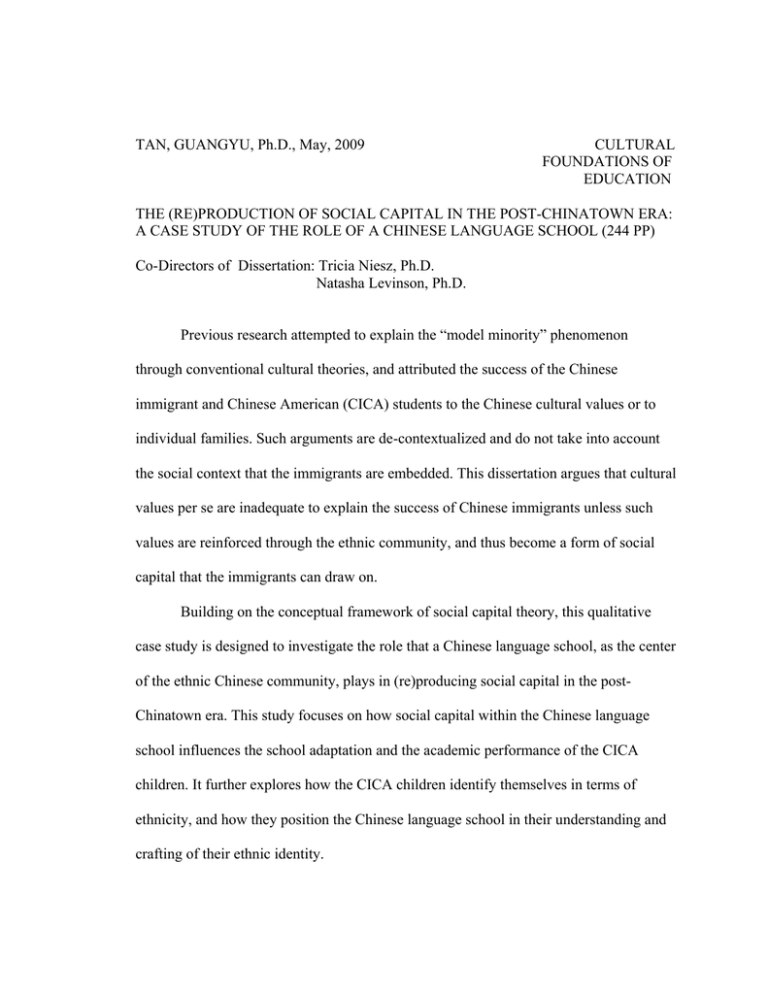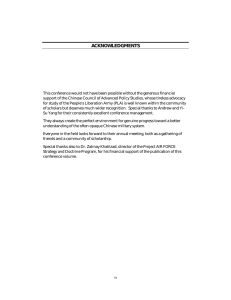TAN, GUANGYU, Ph.D., May, 2009 CULTURAL FOUNDATIONS OF
advertisement

TAN, GUANGYU, Ph.D., May, 2009 CULTURAL FOUNDATIONS OF EDUCATION THE (RE)PRODUCTION OF SOCIAL CAPITAL IN THE POST-CHINATOWN ERA: A CASE STUDY OF THE ROLE OF A CHINESE LANGUAGE SCHOOL (244 PP) Co-Directors of Dissertation: Tricia Niesz, Ph.D. Natasha Levinson, Ph.D. Previous research attempted to explain the “model minority” phenomenon through conventional cultural theories, and attributed the success of the Chinese immigrant and Chinese American (CICA) students to the Chinese cultural values or to individual families. Such arguments are de-contextualized and do not take into account the social context that the immigrants are embedded. This dissertation argues that cultural values per se are inadequate to explain the success of Chinese immigrants unless such values are reinforced through the ethnic community, and thus become a form of social capital that the immigrants can draw on. Building on the conceptual framework of social capital theory, this qualitative case study is designed to investigate the role that a Chinese language school, as the center of the ethnic Chinese community, plays in (re)producing social capital in the postChinatown era. This study focuses on how social capital within the Chinese language school influences the school adaptation and the academic performance of the CICA children. It further explores how the CICA children identify themselves in terms of ethnicity, and how they position the Chinese language school in their understanding and crafting of their ethnic identity. The participants in this study are fifteen Chinese immigrant and Chinese American students aged 10-16, and thirteen Chinese immigrant parents, who come to the Chinese language school regularly. Data are collected through participant observations, semi-structured interviews, and document analyses. The findings of this dissertation suggest that the Chinese language school plays multiples roles in the lives of Chinese immigrants. Social capital embedded in the ethnic community, in forms of friendship with co-ethnic peers, social norms and social control, influences school adaptation and academic achievement of the CICA children. Finally, the Chinese language school provides the CICA children an “affinity” group and a sense of belonging, and thus helps them not only understand but also accept who they are.






